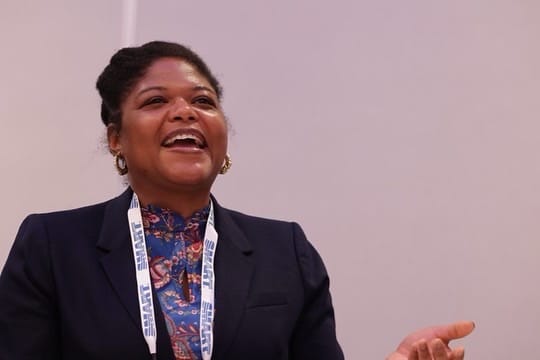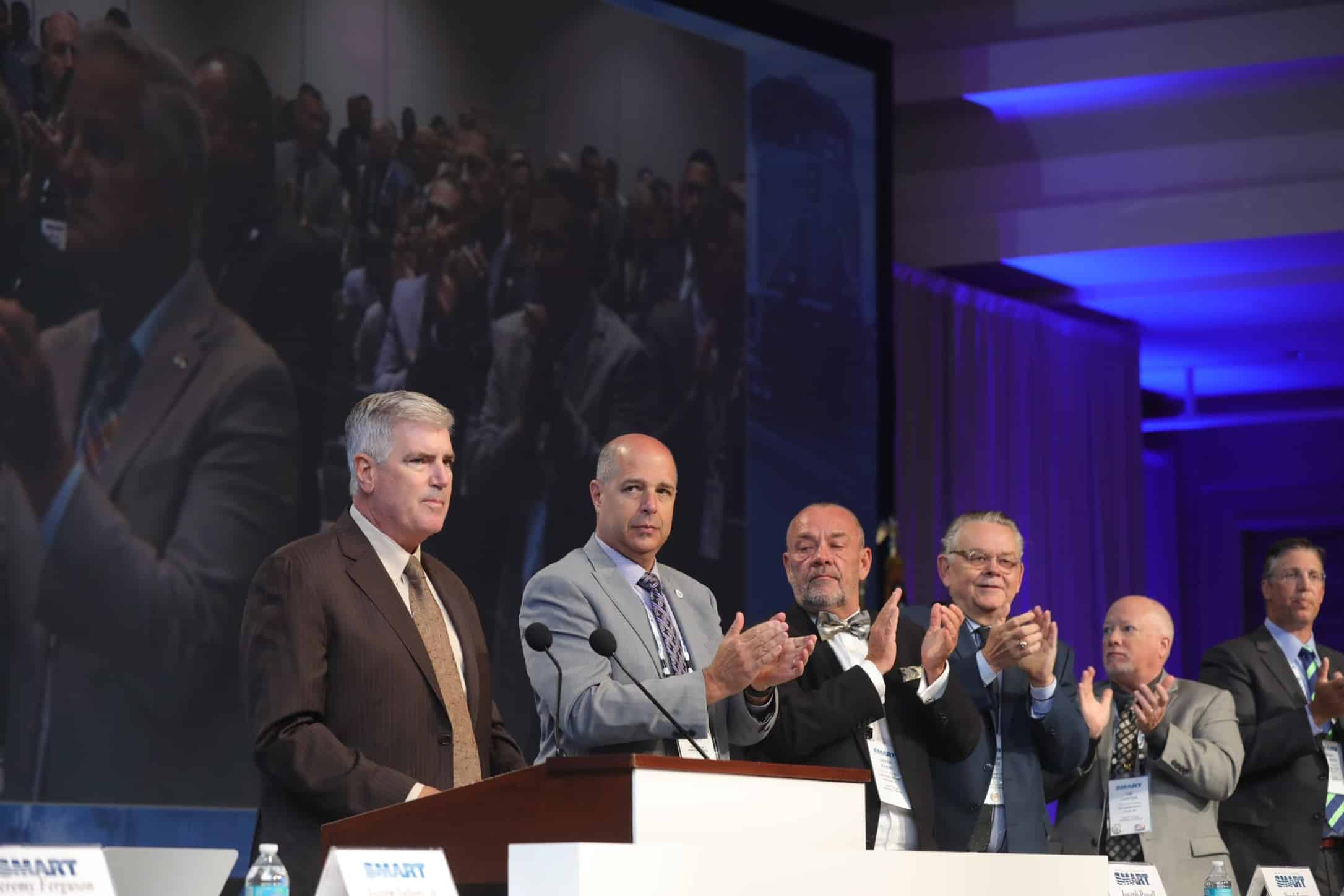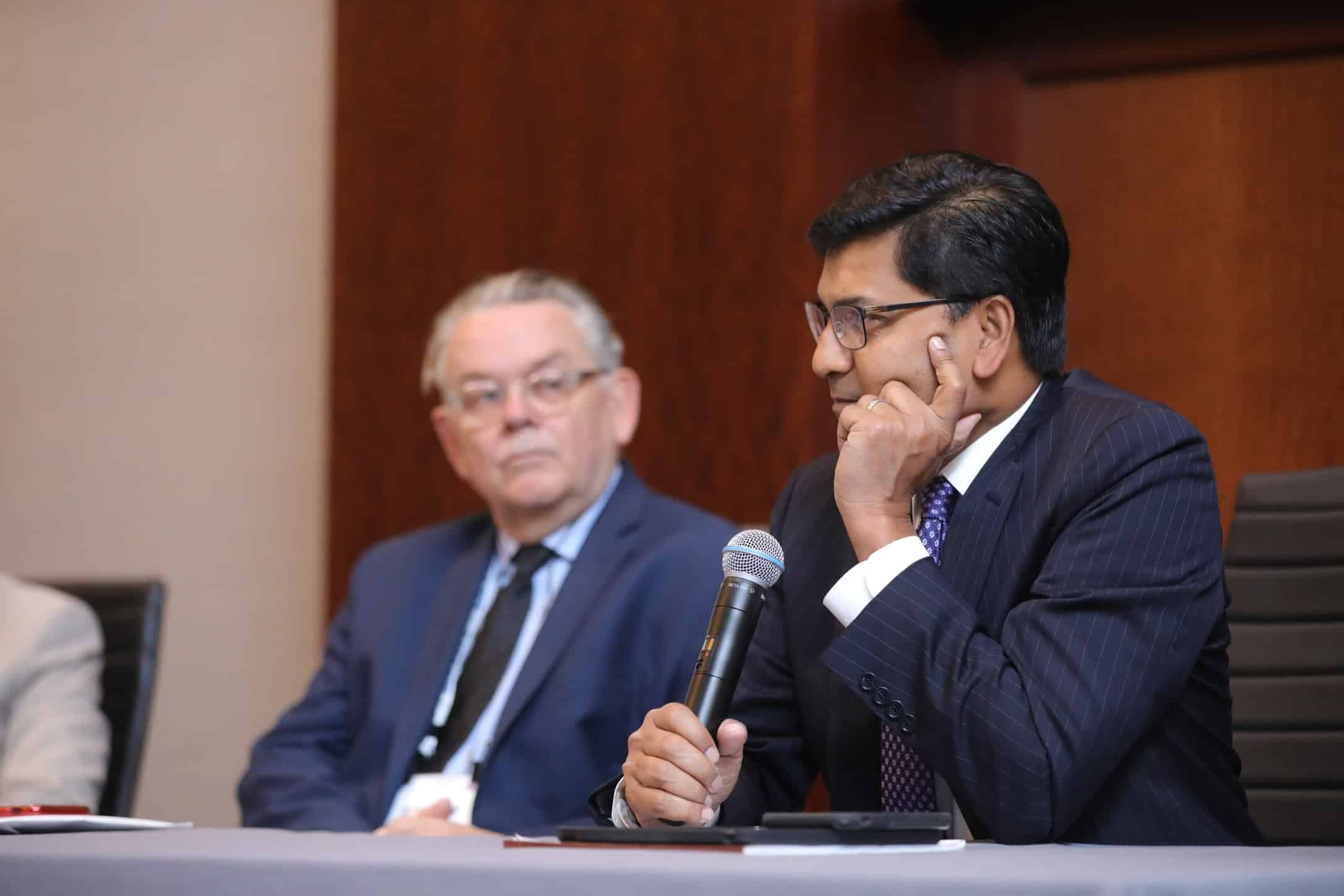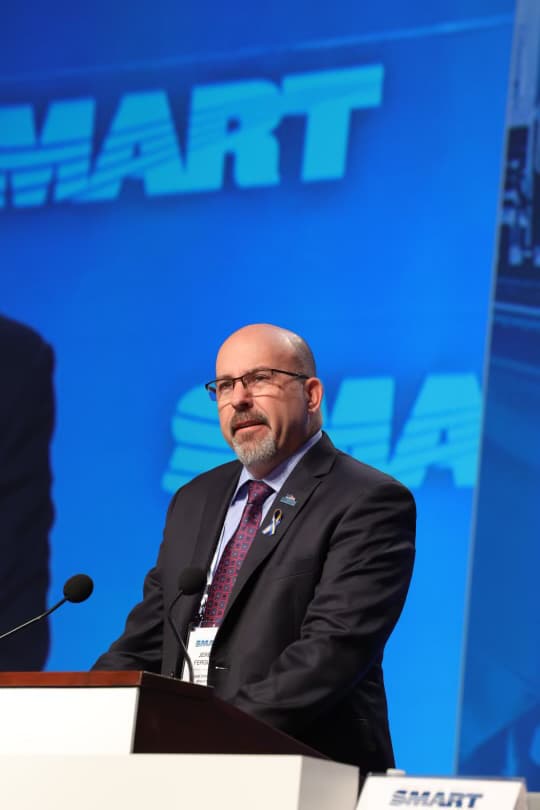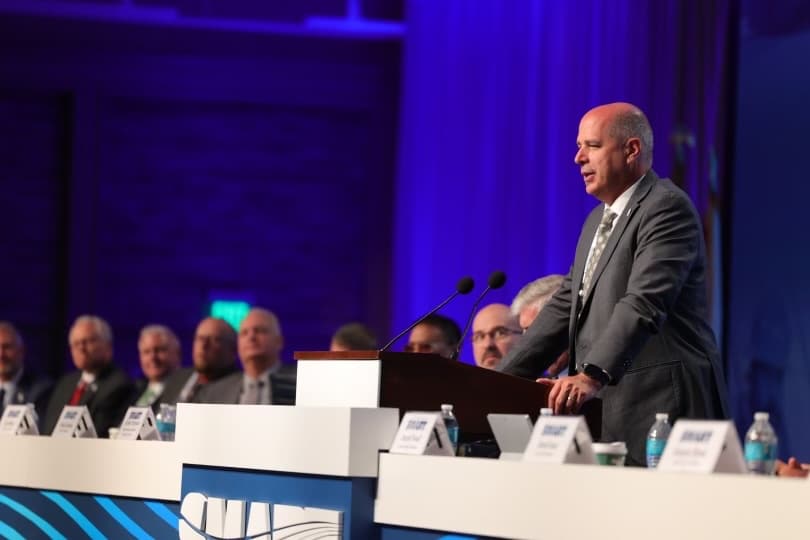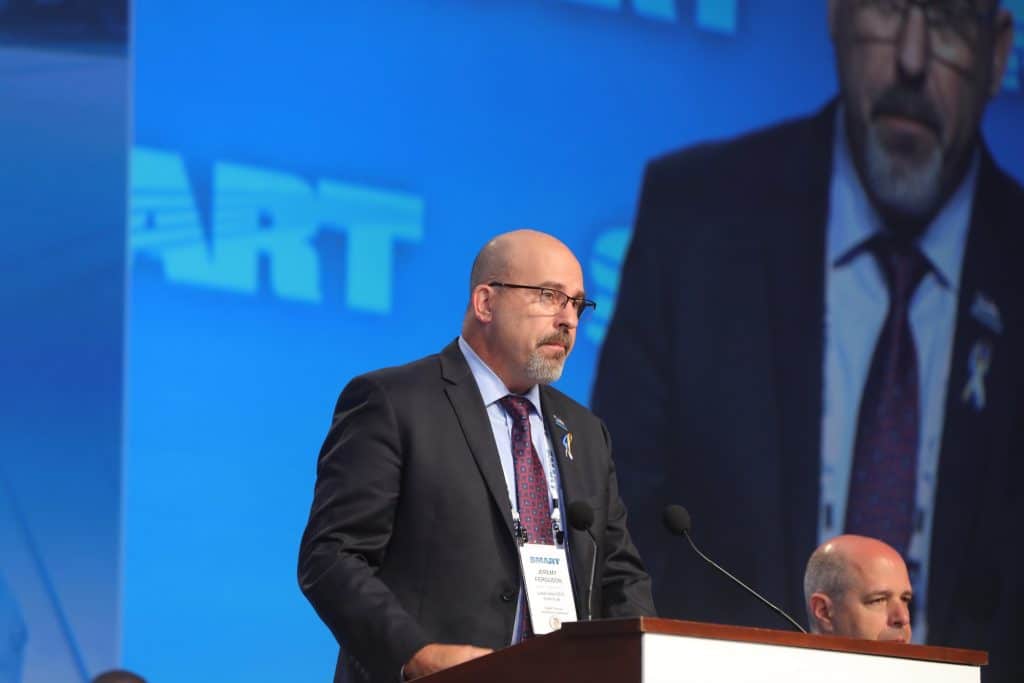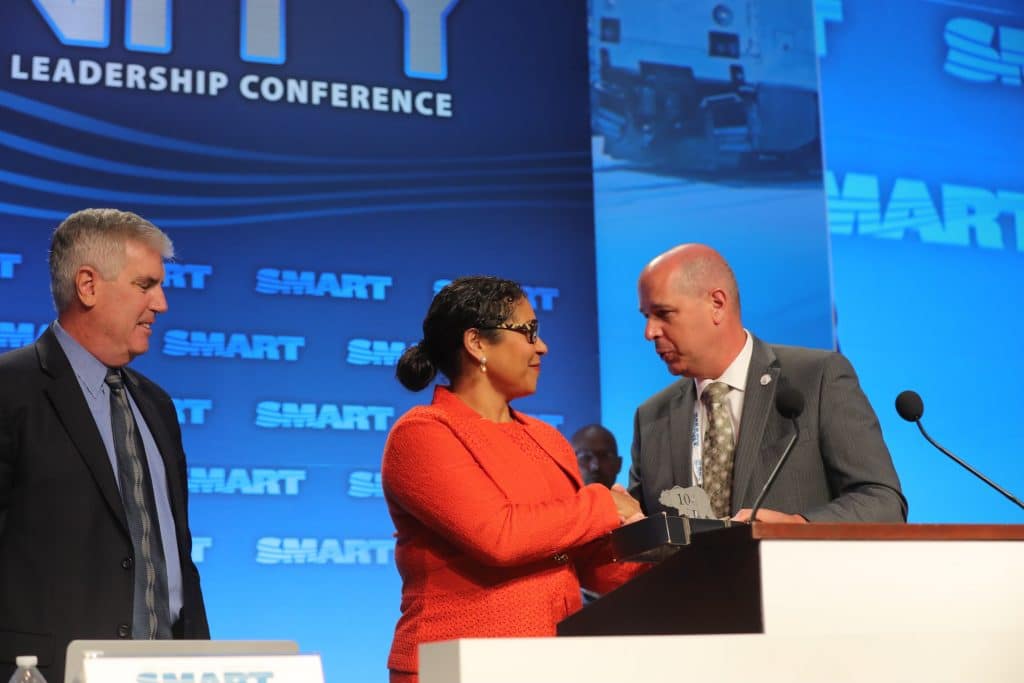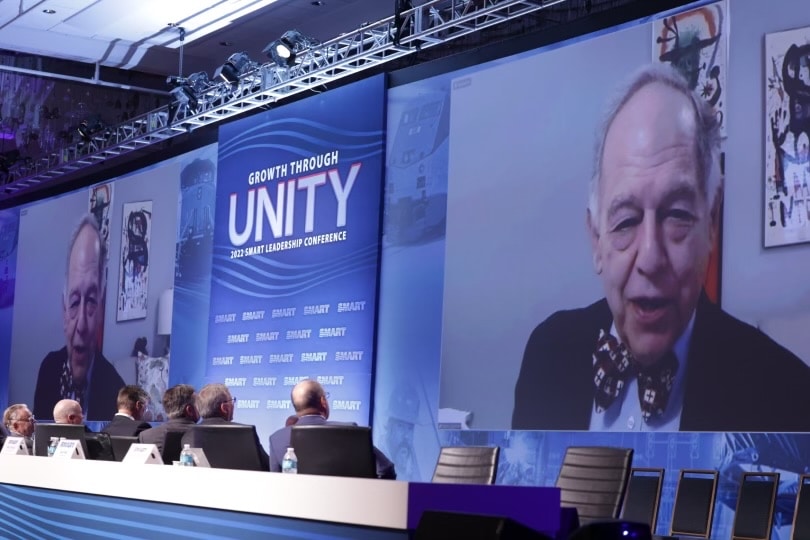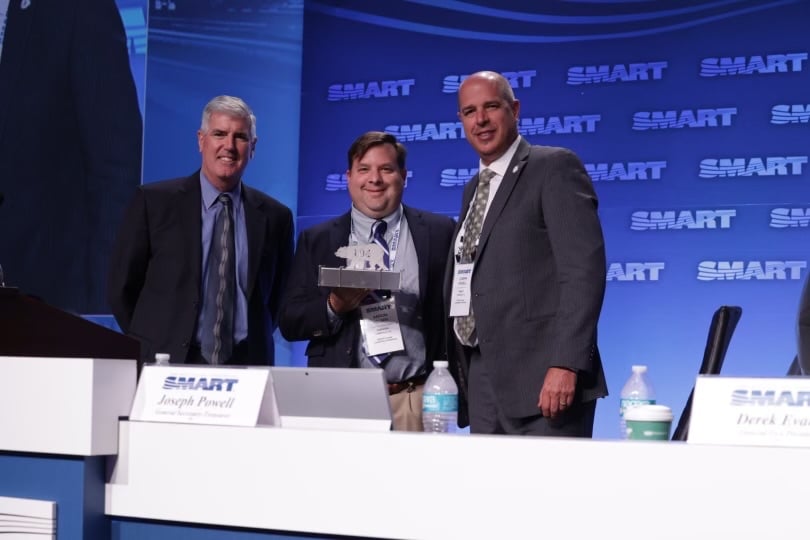Day two of the first-ever SMART Leadership Conference served as a continuation of day one: After hearing from a variety of speakers during the joint and industry-specific sessions, sheet metal and Transportation Division leaders decamped for more breakout sessions, carrying on the demanding work of educating themselves, forging relationships and pursuing Growth Through Unity for our union.
After General President Joseph Sellers called the conference to order, AFL-CIO President Liz Shuler kicked off the joint session with a compelling speech, calling on SMART locals to seize this moment across industries by bringing more workers into the fold and mobilizing members to achieve more victories.
“I’m so honored to be here with you this morning, because I’m feeling pretty good about our future,” Shuler said. “Growth Through Unity is exactly what we need in this moment.”
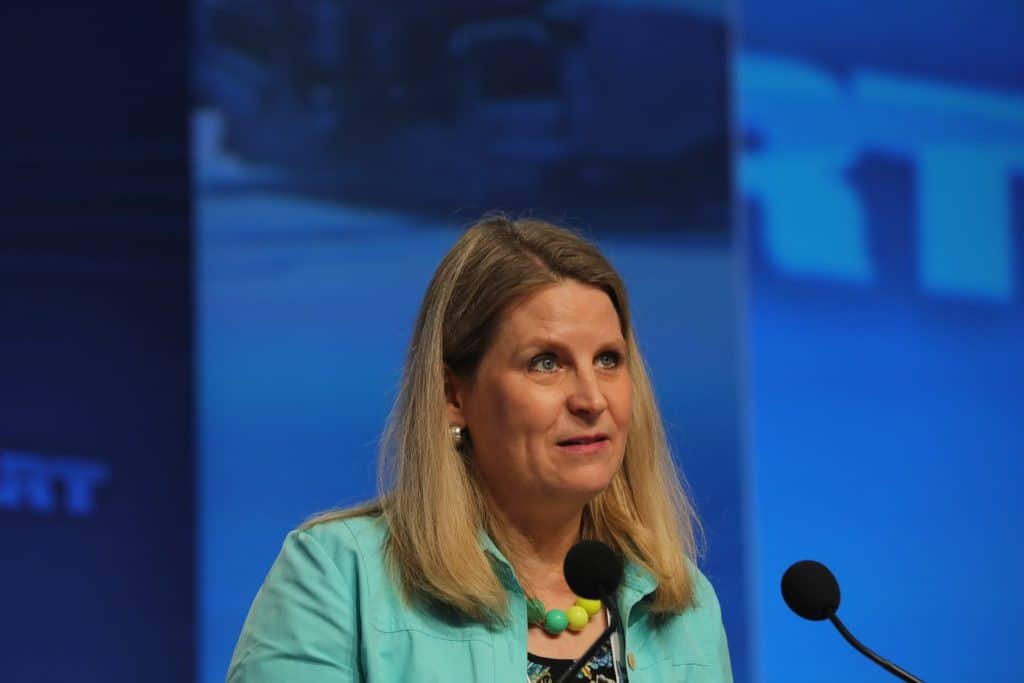
After recognizing the efforts of railroad workers in their battle against brutal attendance policies and for a fair national rail contract, the first female AFL-CIO president turned her attention to the future. The news media, Shuler noted, has been dominated by stories of worker activity: from organizing in new areas like breweries, coffee shops, REI and Apple, to walkouts, pickets and strikes, this is a moment unlike any other in the recent history of organized labor. For that reason, she said, “We need to be taking risks. We want to capture the energy that we’re seeing out there.”
Shuler referenced several of the ongoing fights in the labor movement, specifically the Amazon organizing campaign in Bessemer, Alabama – where AFL-CIO affiliates, including SMART, sent organizers in a strong display of unity. That type of bold, collaborative action, with unions across industries coming together for the betterment of workers, is crucial for the future of our movement.
“CEO pay is 324 times higher than the average worker’s pay,” she said. “That’s absolutely unsustainable, it’s unfair, it’s wrong. So how do we balance those scales? We organize.”
Organizing is more important than ever, Shuler elaborated, as we emerge into a future with ever-advancing technology, a needed focus on clean energy and other changes to our traditional sectors. Technology has transformed the sheet metal and transportation industries throughout our union’s history, and it will continue to do so at an even greater rate. But technological advancement can’t come at the expense of working people.
“If someone wants to develop technology that’s going to improve our workplaces, they should start by talking to the people who will work with it – us,” Shuler declared.
The same goes for clean energy. As industries change and governments around the world implement new policies to mitigate the effects of climate change, unions like SMART need to make their presence felt and ensure workers have a seat at the table. That can only happen, Shuler explained, if we have allies in elected office. The American Rescue Plan, the Bipartisan Infrastructure Law, the CHIPS and Science Act – signed today – and the Senate’s passage of the Inflation Reduction Act (IRA) are all vital pieces of legislation that will help put SMART members to work on an enormous number of projects in the new future. Those opportunities evaporate if we return to an anti-worker Congress.
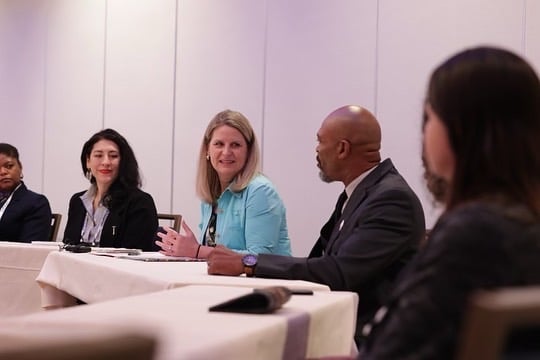
“To make our vision of the future a reality, we need to elect people who will have our back, who share our values,” Shuler said, concluding her speech with a rallying cry for SMART leaders across the continent. “Let’s do what unions do. We join together and fight back … when they say game over, we say game on.” She then gathered with members of the BE4All committee, putting words into action to help SMART better represent all workers.
Shuler was followed by AFL-CIO Transportation Trades Department (TTD) President Greg Regan, who has worked with SMART TD leadership on matters related to BNSF’s Hi-Viz attendance policy, national rail contract negotiations and more. Like Shuler, Regan praised the unprecedented solidarity uniting railroad unions across TTD and vowed to grow that unity; to fight tirelessly for the rights and protections transportation workers deserve.
“There is a level of strength and solidarity in the freight rail labor movement right now that is unmatched,” he said. “We are going to win this fight; we are going to deliver on the contract rail workers have earned.”
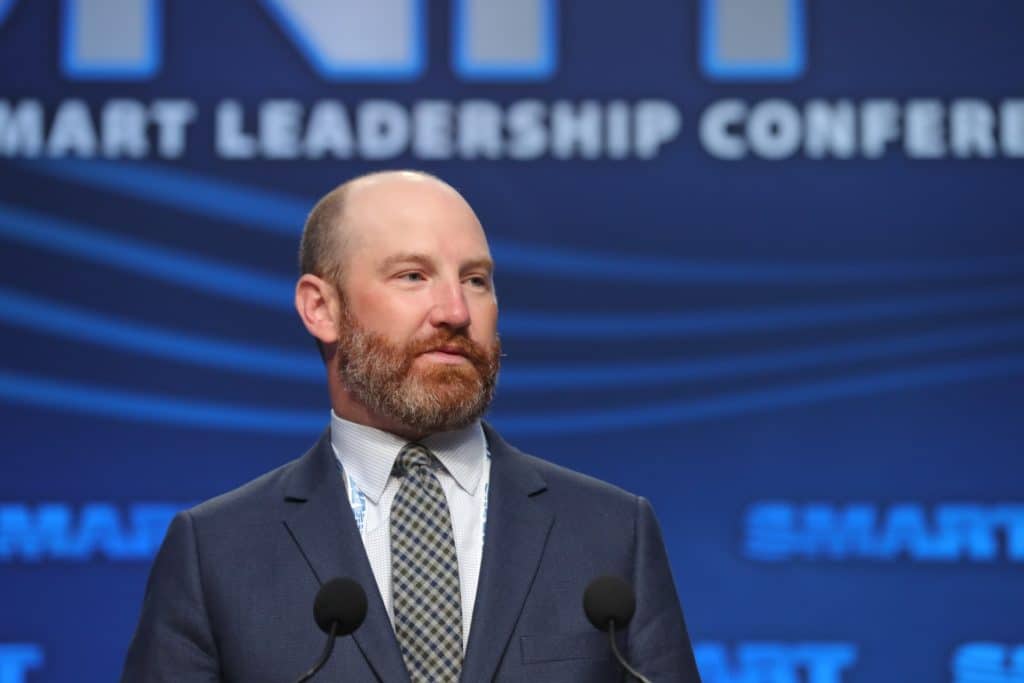
Walt Ingram, executive director and CEO of the Union Sportsmen’s Alliance (USA), took the stand to speak on the importance of using programs like USA to engage with members, from the jobsite to the great outdoors. He then presented the 2022 SMART USA Conservationist of the Year Award to Local 80 (Detroit, Michigan) Business Agent Bryan McConnell.
Also speaking were Matt Haney, a California State Assemblymember representing the state’s 17th Assembly District, and Rick Martinez, executive director of the California Fire Foundation – an organization devoted to providing critical support to victims, firefighters and communities affected by wildfire and disaster throughout California.
Haney spoke about the challenges facing San Francisco, particularly housing shortages and a need for improved public transit, and the role union workers will play in overcoming those obstacles: “We’re not here to talk about good jobs or middle-class jobs, we’re here to talk about good, middle-class, union jobs.”
Martinez used his remarks to speak on the mission of the California Fire Foundation. The foundation is SMART’s chosen charity for the duration of the leadership conference – a mark of our union’s ongoing support for the brave men and women putting their lives on the line to protect Californians from the ongoing effects of disastrous fires. At the time of writing, SMART locals have already raised more than $100,000 for the California Fire Foundation.
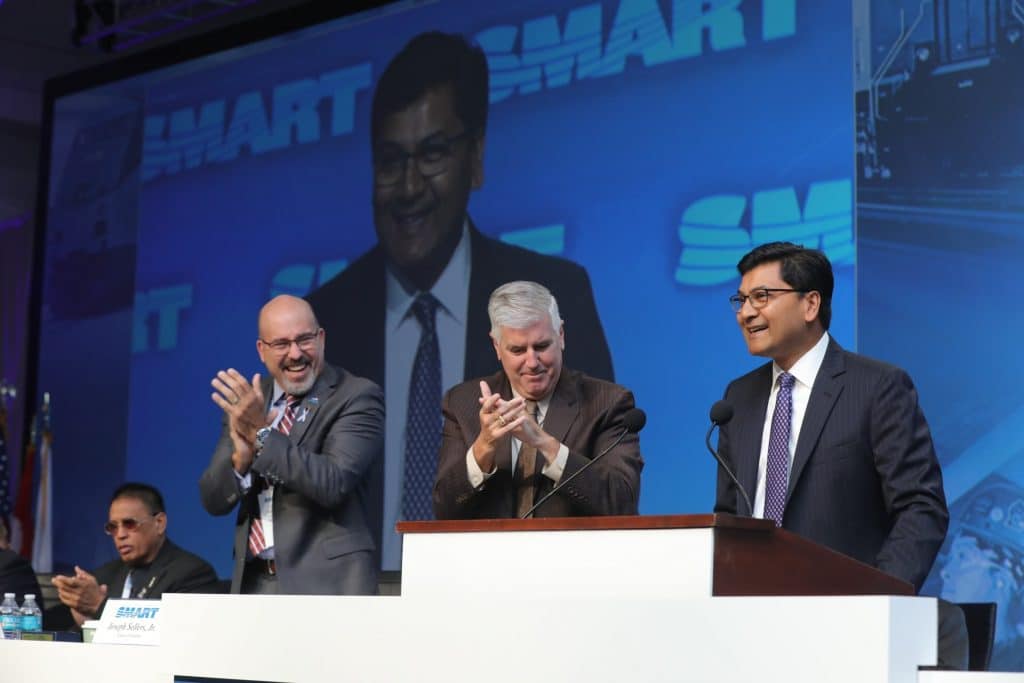
Throughout the morning, the joint session highlighted SMART’s relationship with elected and federal officials. That peaked with a rousing, standing-ovation-garnering speech from Federal Railroad Administration (FRA) Administrator Amit Bose, whose tenure at the FRA has led to unprecedented access and a seat at the table for our union. In his remarks, Bose touched on a variety of topics: the proposed federal rule requiring two-person crews on freight trains, funding to expand and modernize freight and passenger rail systems, and much more.
“As we forge ahead with new passenger and freight rail projects, the FRA understands the important role SMART members will play,” Bose said. “My staff and I will strive to continue to be available to you and listen to your concerns.”
Read about Bose and TTD President Greg Regan’s remarks in greater detail by visiting the Transportation News section of our website.
After the joint session, Transportation Division and sheet metal leaders dispersed for industry breakout sessions; on the TD side, that included another session with FRA Administrator Bose, while sheet metal attendees heard updates from Dushaw Hockett on the work of the BE4All Committee; Erin Gatling on Voyager, a new software system designed to improve local union operations; Dave Bernett, administrator of NEMIC, who outlined how the organization is working to secure more work and market share for SMART; and Lori Wood, who reviewed the welcome fact that the Sheet Metal Workers National Pension Fund is in the green zone and provided an overview of the SMART Local Unions & Councils Pension Fund. Then, attendees separated for more breakouts, with topics including Time Management, Technology Shaping the Sheet Metal Industry, Indoor Air Quality and more.
It was a long day, with local leaders committing to the work SMART members deserve. And just like day one, it was all in pursuit of one goal: strengthening our union.
